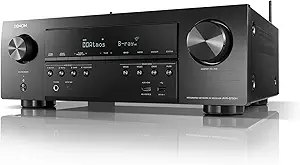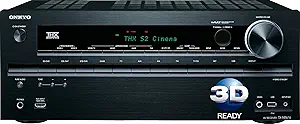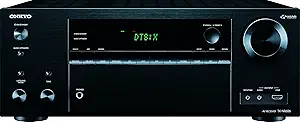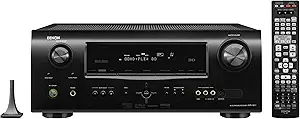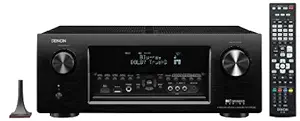Pioneer VSX-LX303 VS
Pioneer VSX-LX503
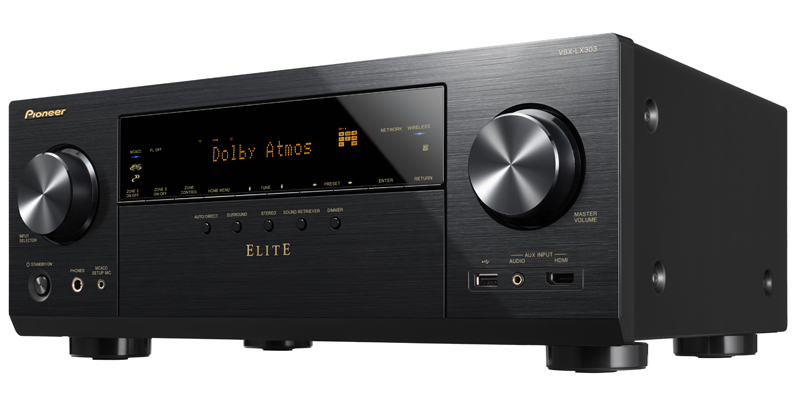
- Brand - Pioneer
- Updated_at - 2023-12-18 19:07:23
- USB - 1
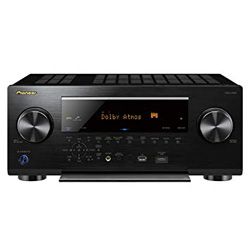
- Brand - Pioneer
- Updated_at - 2023-12-18 19:07:23
- USB - 1
Pros & Cons
Pioneer VSX-LX303
VSPros
- The output sound is deep and clear – it is achieved via the high-grade components and the auto-calibration system.
- The phone application is well-designed – you can easily find what you need.
- Good compatibility with modern devices and many smart features.
Cons
- Setting up the additional zones may be troublesome – you may get no sound.
Pioneer VSX-LX503
VSPros
- It is possible to control the receiver through Google Assistant or Amazon Alexa, which gives full voice control over the basic functions of the receiver.
- The output sound is deep and clear – no lags or noise.
- It assures a stable wireless connection.
- The device can cope with probably any HDMI component it receives.
Cons
- AirPlay is not stable.
- Some customers find the setup process quite complex (due to the poor documentation).
Specifications
Groups
| Specification | Pioneer VSX-LX303 | Pioneer VSX-LX503 |
|---|---|---|
| Additional Features | ||
| A-b Speaker Switch | ||
| Dual-zone Capability | ||
| Pure Direct Mode | ||
| Auto Power Off | ||
| Bi-amplifying | ||
| Audio Return Channel (arc) | ||
| Apple Air-play Support | ||
| Advanced Sound Retriever (asr) Technology | ||
| Three-zone Capability | ||
| Smartphone Remote Control | ||
| Functions | ||
| Internet Radio | ||
| Digital Player | ||
| Network Audio Player | ||
| Power Device | ||
| Operational Power Consumption | 760 W | |
| Standby Power Consumption | 0.15 W | |
| Audio Formats | ||
| Wma | ||
| Wav | ||
| Mp3 | ||
| Flac | ||
| Apple Lossless | ||
| Aiff | ||
| Aac | ||
| Connectivity Interfaces | ||
| Bluetooth | ||
| Ieee 802.3u | ||
| Ieee 802.3 | ||
| Wi-fi | ||
| Connector Type | ||
| Av Inputs | 3 | 7 |
| Usb | 1 | 1 |
| Subwoofer Outputs | 2 | 2 |
| Coaxial Digital Outputs | has not | has not |
| Optical Digital Outputs | has not | has not |
| Hdmi Outputs | 2 | 2 |
| Hdmi Inputs | 7 | 7 |
| Coaxial Digital Inputs | 1 | 2 |
| Optical Digital Inputs | 2 | 2 |
| Phones | 1 | 1 |
| Clock | ||
| Sleep Timer | ||
| Built-in Clock | ||
| Built-in Display | ||
| Colour | black | black |
| Type | fluorescent | fluorescent |
| Signal Processing | ||
| Upscaling Via Hdmi | up to 4K | up to 4K |
| 3d Pass-through | ||
| Video Conversion/scaling | HDMI to HDMI scaling, analog to HDMI up conversion | HDMI to HDMI scaling, analog to HDMI up conversion |
| Hdmi Pass-through | up to 4K | up to 4K |
| Radio | ||
| Preset Station | 40 | 40 |
| Tuner Bands | AM/FM | AM/FM |
| Tuner Type | digital | digital |
| Amplifier | ||
| Total Harmonic Distortion | 0,01 | 0.08 % |
| Frequency Response | 20 Hz-20 kHz | 20 Hz-20 kHz |
| Output Impedance Per Channel | 6 Ohm | 8 Ohm |
| Output Power Per Channel | 170 W | 120 W |
| Total Output Power | 900 W | 1090 W |
| Sound Features | ||
| Digital Content Protection | HDCP 2.2 | HDCP 2.2 |
| Surround System Class | 9.2 channel | 9.2 channel |
| Surround Sound Effects | Dolby Surround | Theater-Dimensional Virtual Surround |
| Audio D/a Converter | 32bit / 384kHz | 32bit / 384kHz |
| Built-in Decoders | ||
| Dolby True Hd | ||
| Dolby Surround | ||
| Dolby Digital Plus | ||
| Dolby Atmos | ||
| Dts:x | ||
| Media Content Source | ||
| Usb-host | ||
| Network | ||
| Bluetooth | ||
| Dimensions | ||
| Dimensions | 14.6 x 17.3 x 6.9 inches | 15.2 x 17.2 x 7.3 inches |
| General | ||
| Brand | Pioneer | Pioneer |

